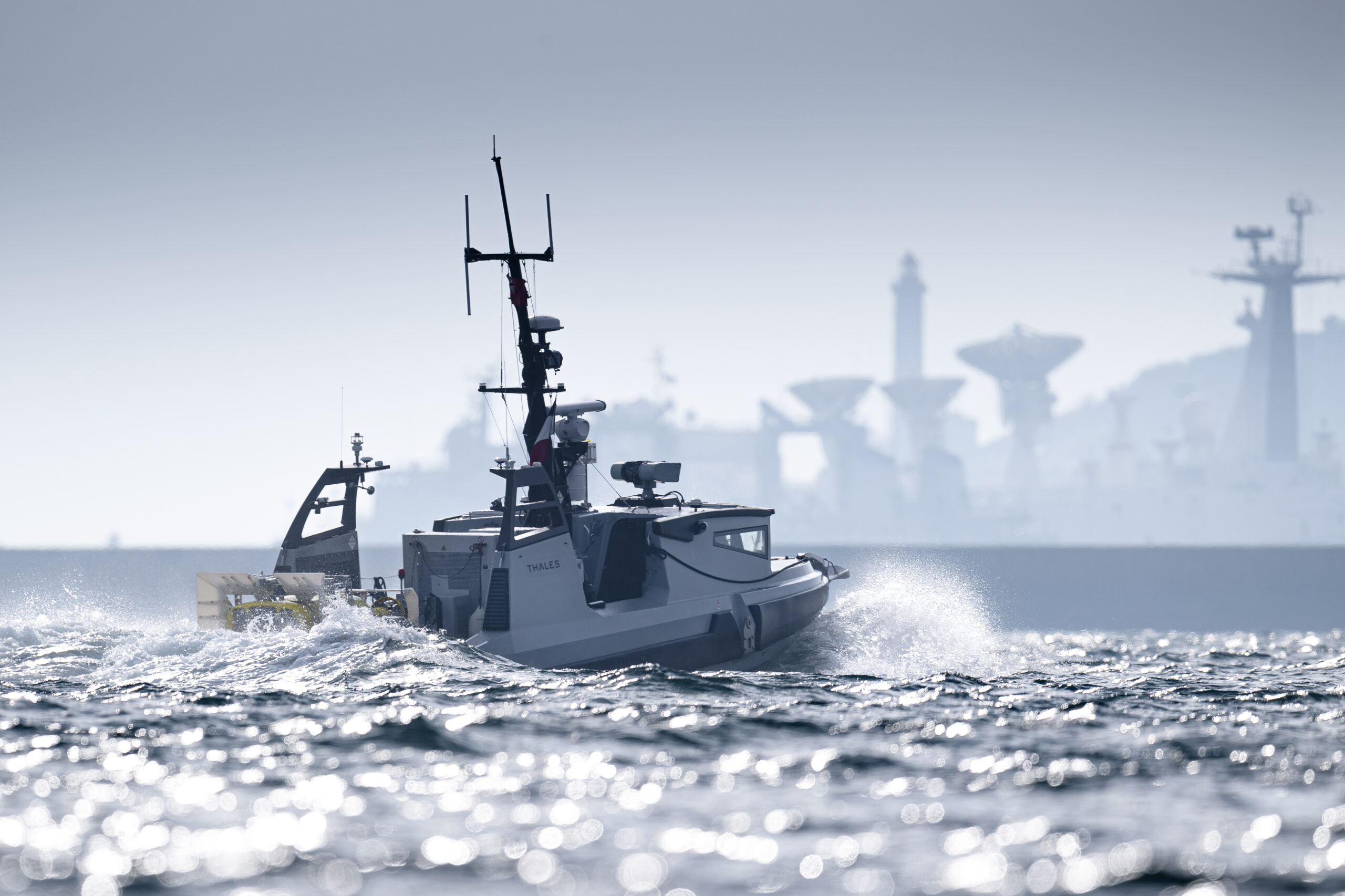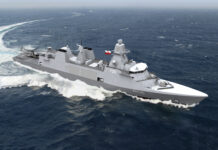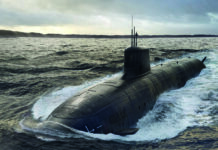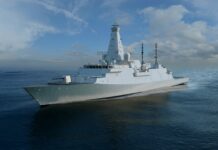Royal Navy Motor Boat (RNMB) Apollo, an uncrewed surface vessel (USV) delivered by Thales to the UK Royal Navy (RN) as a pre-production platform, has completed a demanding series of RN and industry open-water assurance trials, Thales announced on 14 June 2023.
The trials were run in December 2022 off Weymouth Bay by the Royal Navy Maritime Autonomous System Trials Team (MASTT) and supported by Thales, while observing and approving them were representatives from the UK Naval Authority and Technology Group (NATG) and the Mine Hunting Capability team from the UK Ministry of Defence. The trials took place as part of the Anglo-French Maritime Mine Counter Measures (MMCM) programme, which is delivering autonomous capability for both the RN and the French Navy.
According to Thales, RNMB Apollo has successfully proven that remotely controlled uncrewed vessels can be operated by a team at a shore-based control station, completing a series of tasks, while retaining awareness of its course and position using line-of-sight communications systems.
Thales stated that the MMCM programme “is delivering world leading maritime mine warfare capabilities, which will keep the UK and France at the forefront of naval autonomous systems technology”. The company added that the delivery of uncrewed mine clearance platforms to the RN will allow it to continue the “important role of keeping shipping lanes open without putting sailors or crewed platforms into the threat area”.

With RNMB Apollo fitted with a powerful combination of sensors, including radar, LIDAR (light detection and ranging) and electro-optical/infra-red cameras, the vessel’s position was continuously relayed to the command-and-control centre over a secure communications network. This connection enabled the command-and-control software to merge the sensor inputs into a single, coherent tactical picture using Thales’ MCube mission management software. This also allows the detection and tracking of other vessels so that RNMB Apollo can take appropriate actions, including remotely controlled avoidance manoeuvres.
Once in service, vessels like RNMB Apollo will be capable of operating in national waters or being air-transported quickly across the world to hunt for mines in danger zones or to secure sea lines of communication while demonstrating high rates of reliability, autonomy and cyber security, according to Thales. They can be deployed and operated from either ships or shore bases.
RNMB Apollo is one of the two pre-production USVs delivered to the RN and French Navy in December 2021 as part of the UK-French MMCM programme (the other one being RNMB Artemis). With stage two of the contract now in the production phase, Thales said that it is actively working with the customers and will be able to deliver a full operating capability to both nations in 2024.
The capabilities provided by the MMCM programme will ultimately replace the manned mine countermeasures vessels (MCMVs) operated by the British and French navies. The RN’s seven Sandown-class MCMVs are due to be retired between now and 2031, while the RN’s Hunt-class MCMVs are due to be retired between 2029 and 2031.
“As the first of their kind, these trials are a significant milestone in the path towards certification of autonomous maritime systems for operational use,”Alex Cresswell, Chief Executive and Chairman of Thales UK, was quoted as saying in a company press release. “They represent one of the first important steps in gaining trust in uncrewed vessels in a complex programme. The trial is a critical remote operation stepping stone towards autonomous mine hunting.”
Peter Felstead









